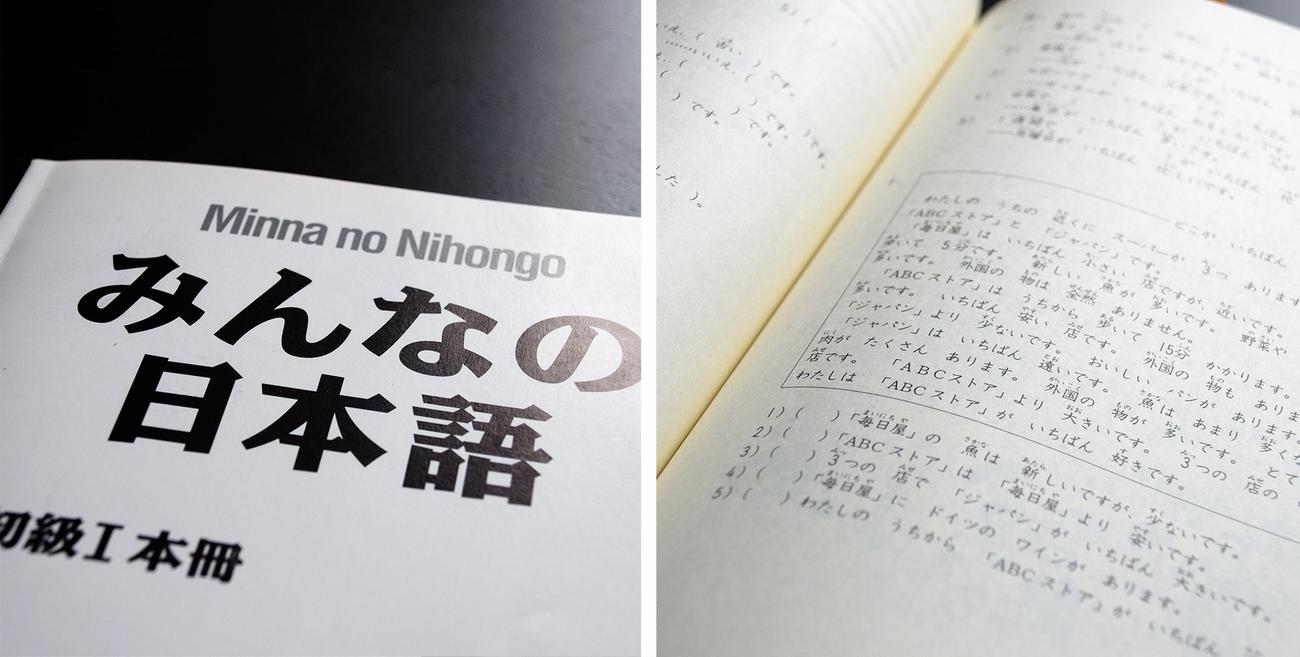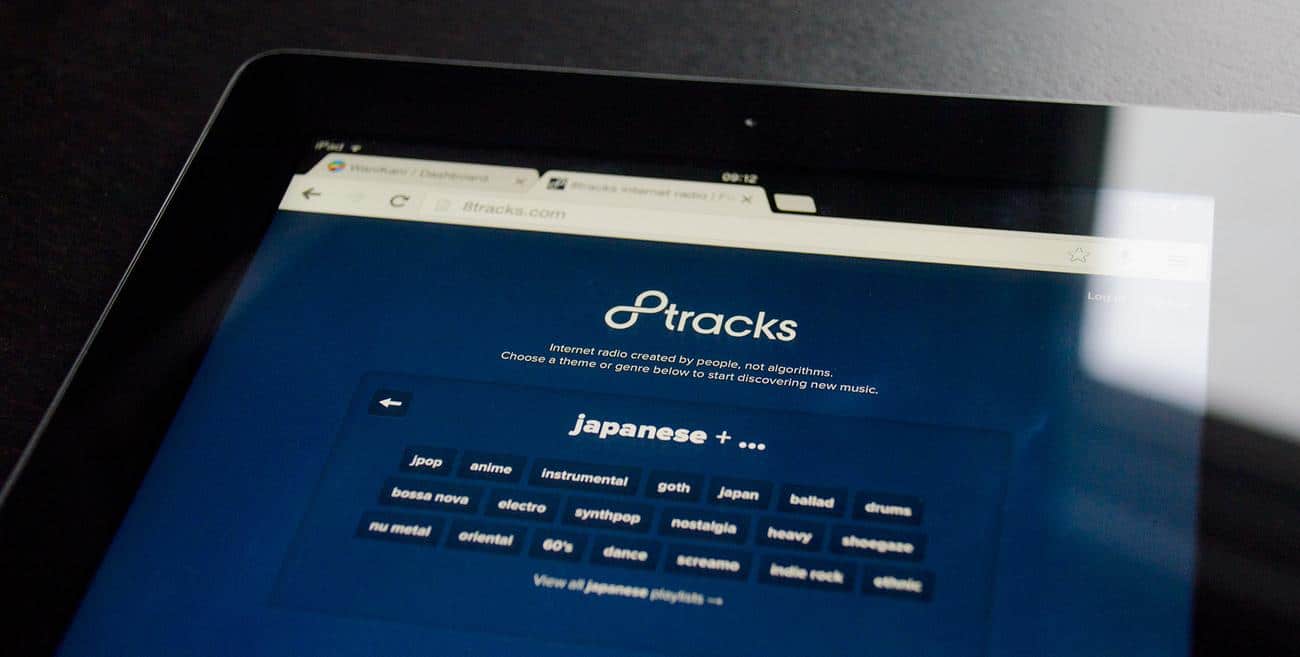A new year is synonym of new resolutions, isn’t it? On my side, I want to study more and better, and if you want to learn a new language, especially Japanese, here are some tips! Because since I can recall, I’ve always been passionate by language learning. I guess it’s a matter of communication. From been a graphic design and communicating through image, it is also fun to navigate through the amazing world of language learning. I live in Montréal in the province of Québec. It is a French-speaking community in Canada, and French is my mother tongue. Although, I’ve always been so easily surrounded by English, it became something easy to pick up. When I was in high school, I went through Spanish classes, got interested in German a bit later on, and finally, totally fell in love with the Japanese language in university. Every language I learned was a way to get deeper in its culture
The Japanese teacher I had has been incredible in fact. He definitely was a passionate teacher, a linguist, speaking 7 languages. That was pretty amazing. And he was motivated and motivating! The school book, though, みんなの日本語(Minna no nihongo), was pretty hard to follow, especially when you know very little Japanese! In class, I learned the basics, getting to know by heart the hiragana and katakana in two weeks (but quite useful), we viewed basic grammar, learned about 300 vocab words and simple speech forms. On the kanji side, it was pretty limited. But that was a good start. To any beginner, I suggest taking a class, just to get to know the basis, and get familiar with the pronunciation. It can also be good to keep up with the motivation in first place, especially if the teacher is good.
After the semester, I came upon Textfugu and Wanikani. I’ve stick to this since more that 6 months and I still really enjoy it. WK is an amazing app to learn kanjis; I can notice that I can read a lot more stuff and that’s motivating. Plus, the community is fun and alive. (To get more infos about WK, take a look at this article by Jakob). Textfugu is great to get the grammar comprehension and is having a big update right now. But Jakob’s article about the dictionary of basic japanese grammar is definitely worth a look too! With this basis, take a look at Duendecat. It’s a web app that generates sentences using the kanjis you learned by level on Wanikani. Really useful. Along that, I also use Lang-8, a social network to write short texts that are corrected by native speakers. I like the fact that you get comments and possibilities to interact with the corrector. On your side, you can correct texts written in your native language. I know that starting to write something when you don’t know a lot about grammar and vocabulary can be… hard, but start by describing what you’ve done last week or which food you like. Even is your level is low, try it. Any start is a good start!

Also, recently, I found out this Reddit tread, the Total language Challenge. I came over the Japanese Team, which can be a nice way to stay motivated and to write down your progress. It seems to have a lot of resources. Between this, I listen to a lot of Japanese music; you can go on 8tracks to discover great songs. I’ve only put on one mix, but you should do it too! And last summer, I also ordered a Japanese Nintendo 3DS. It’s a playful way to get familiar with kanjis and sentences structures. I especially like 動物の森 (Animal crossing) and will try soon ファンタジーライフ (Fantasy Life). Also and unsurprisingly, one of first contacts have had with the Japanese culture was with the animes. On Crunchy roll, you can stream a lot a series and got the option of sub or no sub. I came across a nice trick the other day. Watch the episode with subtitles first, and then, right after, watch it again without sub. Because of the first view, it will be easier to pick up the words without the sub. I also should read more mangas. Jakob gave nice suggestions with easy Japanese manga, some more manga and some manga without furigana. Finally, I’ve also put my Facebook and cellphone in Japanese. Sometimes it’s frustrating, but it’s interesting to learn and get used to some kanjis in context. Try it, it’s a fun and playful way to stay immersed. In Montreal, there is the Japanese Canadian Cultural Center of Montreal. It’s a great way to take classes, attend events and meet new people. If you’re living in a big city, there’s good chances that a similar cultural center exists. Take also a look on Meetup to join a local conversional group in your area.
I know that there is still a long way to go, but I happy with the progress I’ve made in such a short period of time. I’m optimistic. Most of all, I try to be in contact with Japanese as much as I can, been in a non-Japanese environment. Good luck!











OMG this is crazy ! I’ve known this website for a while, but only now do I realize that : I’m also from Montreal, French being my mother tongue, and everything you wrote in the introductory paragraph I can relate to !
Also a graphic designer (but moved to Public Relations with an East-Asian certificate with a Japanese specialization). Also learned Spanish and a little bit of German in Cegep then started Japanese at my university (UQÀM) also with Minna no nihongo ! I could have wrote that !
… et en fait, je pourrai simplement dire le tout en français ! ?
Bonjour !
Je me lance dans le grand défi, après une grande pause de 2 ans (*cough*) de faire le JLPT N4 en décembre. Merci pour les ressources, elles
sont très appréciées ! Je m’y remet en self-study cette fois.
Bref, j’adore le site et bravo pour le travail ! Ça me ferait plaisir en fait de discuter davantage si tu as un peu de temps ! C’est pas mal rare de tomber sur quelqu’un avec un parcours aussi similaire au mien et dans la même ville (ça n’arrive jamais en fait. Haha!). À moins que tu sois rendu au Japon depuis?
Je vais prendre le temps de lire plus en détail tes recommandations!
Hey Caroline, thanks for your nice comment. Unfortunately, that post was not written by me but by https://disqus.com/by/ameli… She wrote a few posts for Japanese Tease is the very early days and this was one of them. Due to the recent site move that post was accredited to me as the other which really has to be changed. I hope she can see your comment. I’ll forward it to her :) Good look with taking the JLPT in December :)
Bonjour Catherine, heureuse que les ressources puissent t’aider! C’est intéressant de revoir cet article après 4 ans; j’utilisais plus 8Tracks et moins Spotify pour des découvertes musicales à ce moment. ;) Et j’ai particulièrement aimé WaniKani. J’ai malheureusement fais une pause niveau japonais; je me concentre plus côté travail (design/illustration/motion design). Cependant, ça pourrait être chouette d’aller prendre un café à Montréal si jamais ça t’intéresse!
For iOS users, MindSnacks has a Japanese app (along with several other languages and review for a US college-readiness test called the SAT). I’ve been using it for weeks, and it’s a fun way to add individual words and expressions to your vocabulary (but should not be one’s only form of study, because grammar and sentence structure aren’t discussed). The other downside is that, since the MindSnacks blog hasn’t been updated since 2013, and the app also hasn’t been updated in a long time–so it probably won’t be compatible with future iOS versions! (I hope MindSnacks isn’t completely out of business–this really is a great vocab-builder app!)
1st lesson (body parts) is free; the whole complement of Japanese lessons is $5US; an “all-access pass” to every MindSnacks app is $20US.
There’s an easy toggle between romaji (which I haven’t used, because the audio renders it utterly unnecessary), kana only, and kanji, plus it’s easy to look up the words for the current lesson (which are all written English/kana/kanji/romaji). You can also easily change between games on the current lesson, a general review of all mastered lessons, or reviewing a specific lesson. The gamification factor makes it easier for a 30-something ADHD woman like me to study Japanese almost every day in some form. I just need to buckle down and work on verb conjugation and sentence structure, so I can actually communicate at some level.
Thank you very much for intruducing Wanikani and Textfugu. The best part was the 50% discount on Wanikani for Textfugu members! I’m using both and love them greatly. I’ve also started using Lang-8. It’s really fun.
Thanks for sharing with us.
That’s awesome right? used it myself when I gave Textfugu a try last year :) Thanks for your comment
Shahrzad, I’m glad you found this post useful! :)
A nice article, and summed up nicely that it needs to stay fun. Even moreso for self committed people ^.^
The 8tracks site sounds interesting to me, seems like a nice way to find out about new music, so I’ll definitely try that one out.
Also, maybe the idea of just making friends who know Japanese would be a nice thing to do, after all, friends being fun is what makes them friends! (I hope) Or even just making sure you’re part of a community of Japanese learners, it’s nice to know you have company.
I really feel like maybe I should have engaged in some formal teaching in Japanese… currently, I’ve had 0 hours. And I think, while I’ve managed to get through the beginner stages somehow, I’d have found it much much easier with the help of a class to teach me the fundamentals (I spent about 2 weeks just trying to get the idea around my head that, yes, kanji is important and used often and therefore I must learn it).
However, I would say it shows that I’ve never taken classes, as I have… confidence problems when it comes to thinking of speaking it. Hehe, well that’s what I get when I learn almost exclusively in my room ^.^” I expect joining a class would probably help people also feel a bit more natural talking the language with other people, and maybe even just asking for help from native speakers. But self learning does give a sense of pride too ;-)
Good luck to everyone!
HatsuHazama, I’m glad you liked the post! I added the part about the community, that’s true that it’s a a nice get to keep in touch with the Japanese community through a cultural center or even websites like meetup.com!
If you can find friends that are also learning Japanese would definitely help to keep up with the motivation.
Good luck on you side too. :)